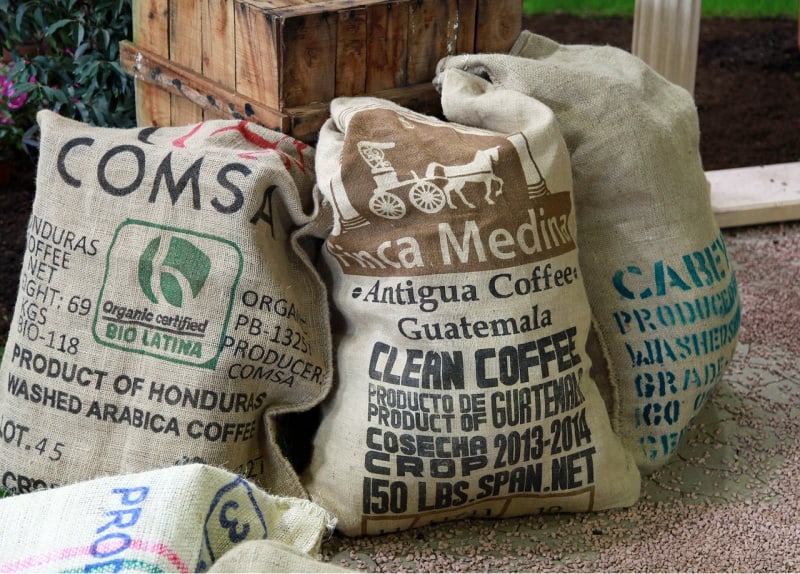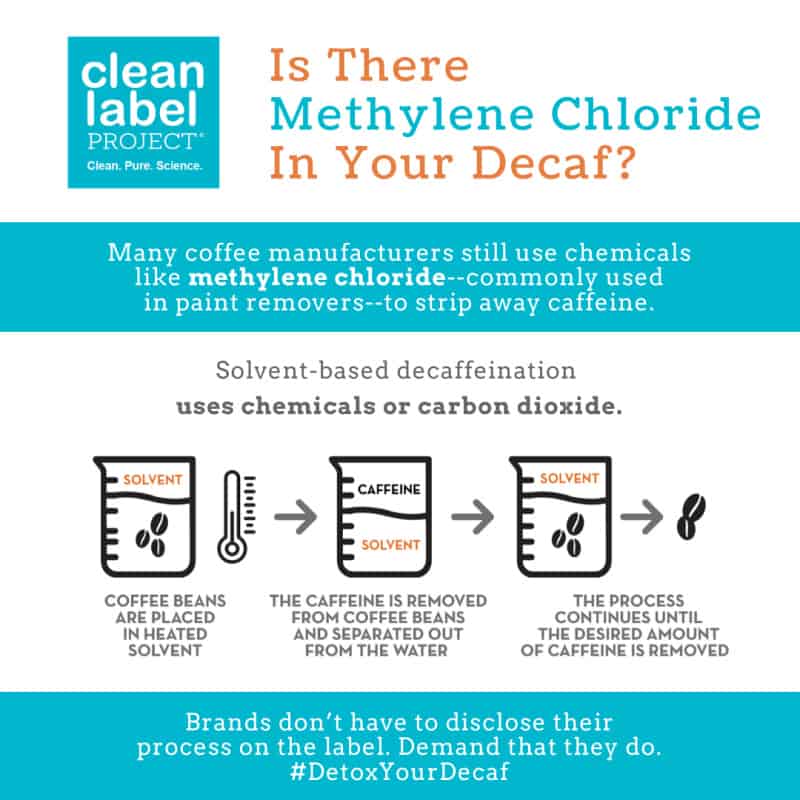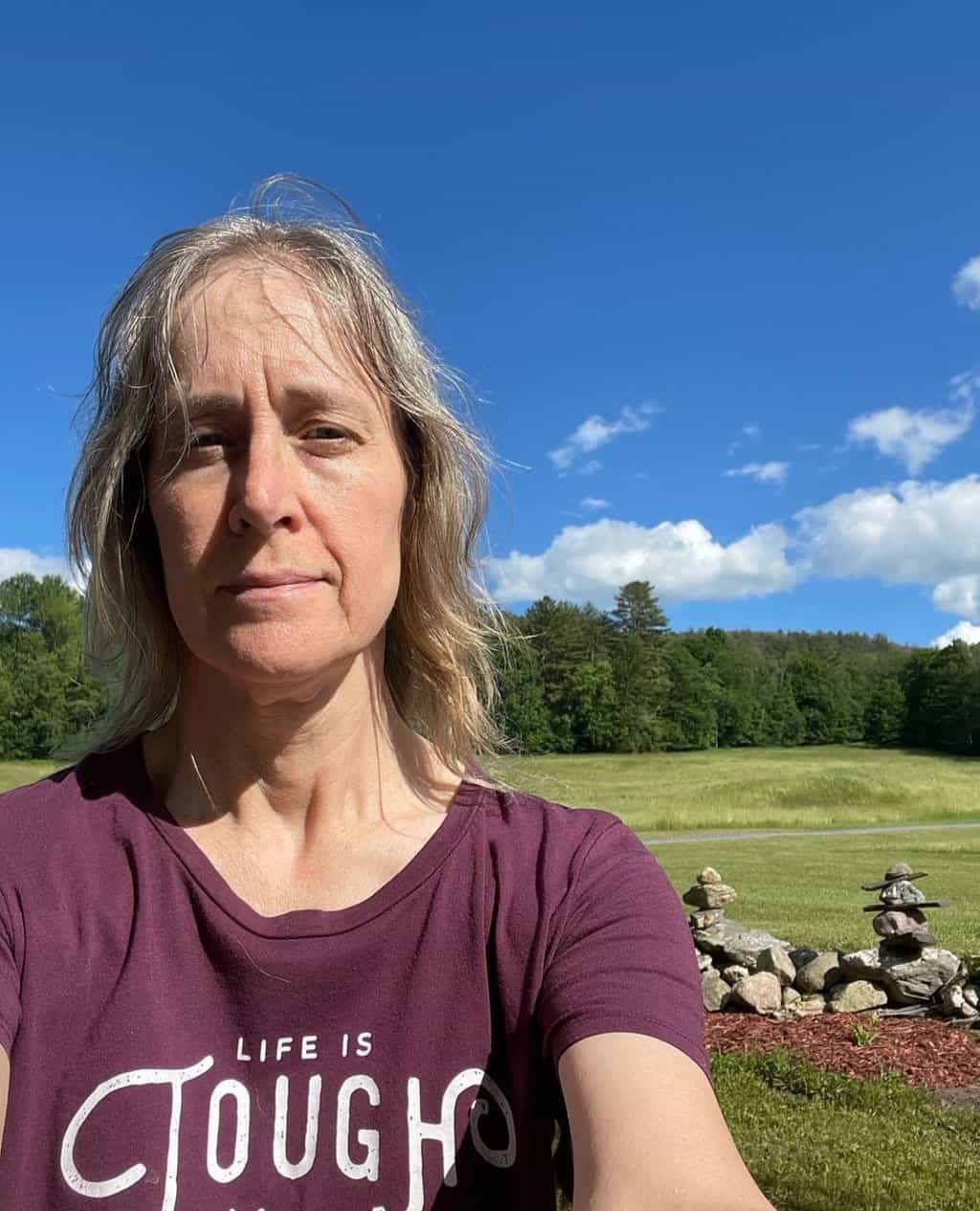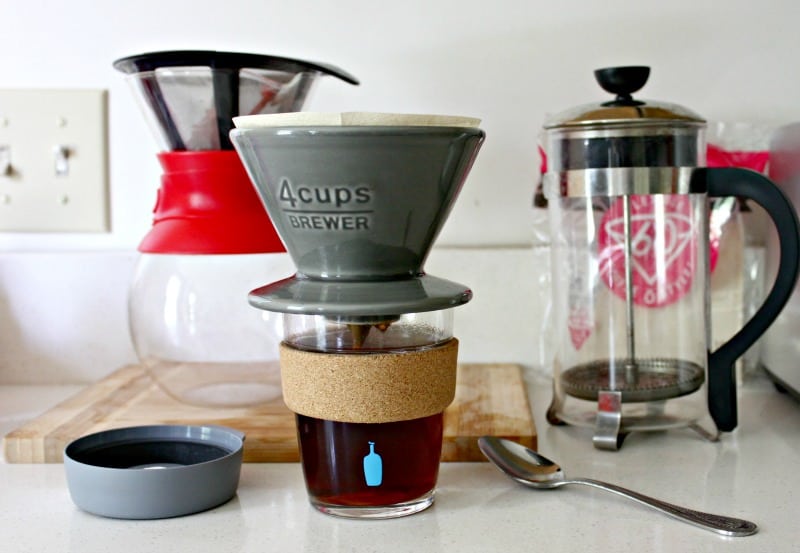Last Updated on January 27, 2021 by Ellen Christian
Pros and cons of decaf coffee? Yes, you read that right. Find out the decaffeinated coffee dangers and learn how to choose a safe option.
Posts may be sponsored. This post contains affiliate links, which means I will make a commission at no extra cost to you should you click through and make a purchase. As an Amazon Associate I earn from qualifying purchases.
Decaf coffee dangers aren’t something you usually hear about. But, as a passionate java drinker, there are a few things you need to be aware of.
I’ve written before about the health benefits of coffee. And, Bulletproof Coffee is certainly a healthy way to enjoy your favorite beverage in the morning.

Pros and Cons of Decaf Coffee
There are many people who choose to avoid caffeine for health reasons. And, since your morning cup of java is usually a source of caffeine, many people turn to this instead.
Caffeine can be dangerous for women who are pregnant or anyone that has heart problems. It can also be an issue for people who suffer from gout or people who suffer from insomnia.
While many people assume that decaffeinated options have no caffeine, that isn’t true. It still contains about 3% of the caffeine of a traditional cup of joe.

Why decaf is bad for you
According to researchers, decaffeinated coffee might increase the amount of a certain type of cholesterol in the blood. The reasoning is that it’s usually made from a bean with a higher content of fat.
There can also be dangers depending on how your beans are decaffeinated. The process to remove caffeine from the beans may include using harmful chemicals.

Is decaf coffee full of chemicals?
There are two different ways to remove the caffeine. The first involves a chemical process that uses methylene chloride (the active ingredient in paint strippers).
The second method is often called the water method and the label will often state naturally decaffeinated. Or, you may see Swiss water processed on beans that don’t use methylene chloride.
You need to know how brands are removing the caffeine. But, it isn’t always as easy as that.
Does decaf cause inflammation?
For those with chronic illnesses related to inflammation like rheumatoid arthritis or inflammatory bowel disease, decaf may not be the best choice. Some research has shown that drinking this type of coffee may increase your risks for developing RA.
I have an autoimmune disorder and arthritis. I am very sensitive to things that cause inflammation. And, I try to avoid products that have added chemicals because they can be triggers especially as I get older.
Because of this, I usually avoid decaf. Instead, I drink regular coffee and simply avoid it as it gets closer to bedtime so that I sleep well.

What is the best decaf coffee?
Clean Label Project has filed lawsuits against four national brands for false and misleading advertising and labeling. These brands claim that their decaffeinated products are “pure and natural.”
In contrast, the Clean Label Project’s study showed that methylene chloride was detected in the decaffeinated products of these brands. Clean Label Project’s mission is to raise awareness about the presence of potentially dangerous environmental contaminants and toxins in everyday consumer products.
Unfortunately, the FDA currently allows methylene chloride to be used in the decaffeination process. And, the brands that use this process are not required to disclose this on their package or labels.
What’s the best type of decaf?
Different types of beans contain different amounts of caffeine. A light roast (like your Breakfast Blend) will have more caffeine than a dark roast like espresso (by volume).
Organic beans will be free of pesticides and dangerous chemicals. You can see if your beans are organic by looking for the USDA organic label on the bag.
Of the 25 brands that the Clean Label Project tested, 10 brands tested positive for methylene chloride. This is something that we need to know to make an educated decision.
So, is decaf safe? When it comes to the pros and cons of decaf coffee, you have much less to be concerned about with the Swiss water method.
Brands need to disclose this so that we can make informed decisions. Learn more.

What can you do to help?
- Read the labels and look for chemical-free products.
- Contact your favorite brands to encourage them to use the Swiss Water Method.
- Talk to your doctor about exposure to methylene chloride.
- Share this blog post using #DetoxYourDecaf
Why not learn more about low acid coffee.

Ellen is a busy mom of a 24-year-old son and 29-year-old daughter. She owns six blogs and is addicted to social media. She believes that it doesn’t have to be difficult to lead a healthy life. She shares simple healthy living tips to show busy women how to lead fulfilling lives. If you’d like to work together, email info@confessionsofanover-workedmom.com to chat.


this was definitely helpful to me, Ellen! I’ve got some inflammatory arthritis, and I thought that decaf coffee would be good for me! But, I was wrong!!
I’m so glad to hear my article helped you! Decaf isn’t always the best option for everyone.